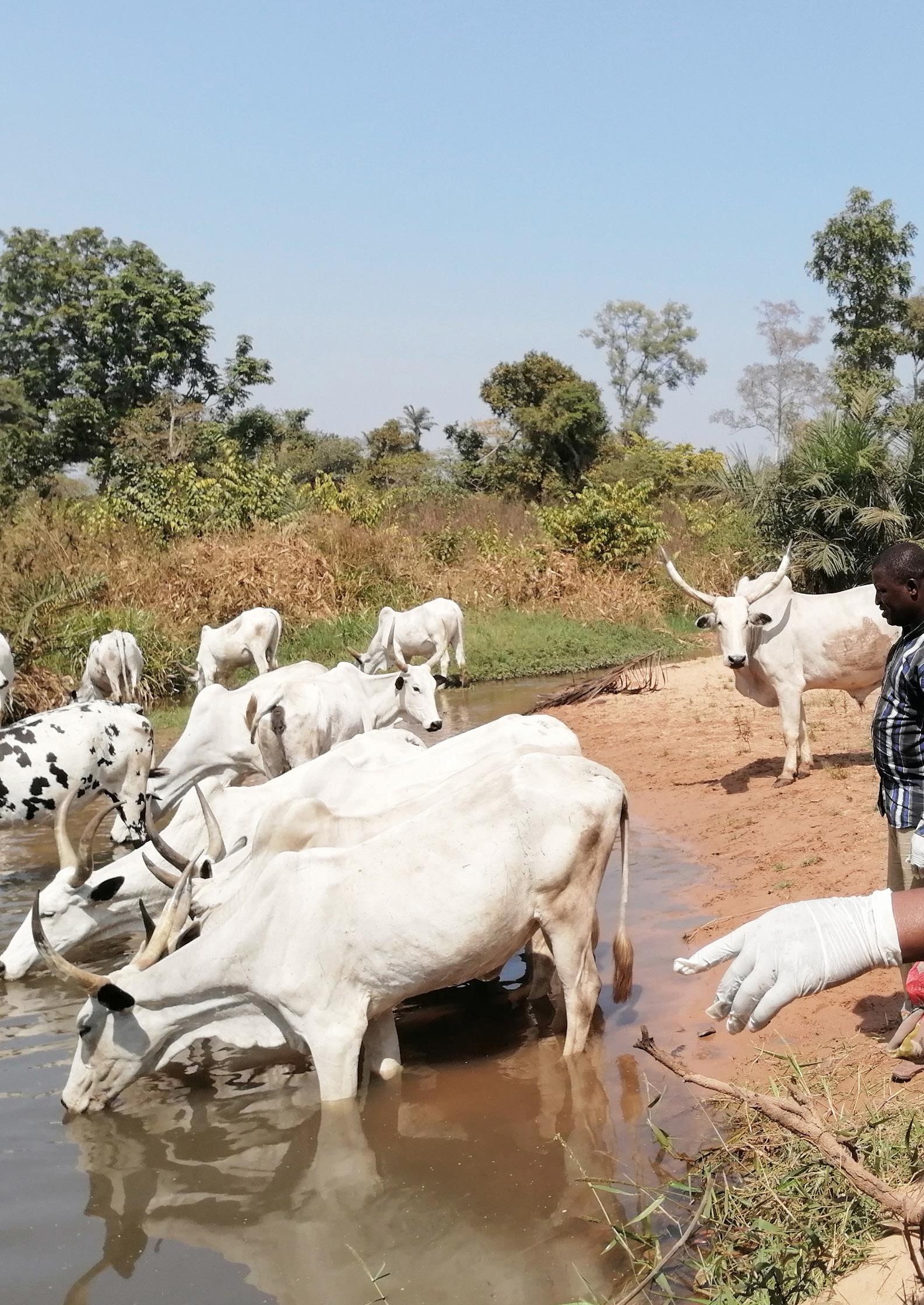
3 minute read
Collaborative research
by IFS
A Strategic Evolution for Impact:
Individual, Collaborative and Advanced Research through Capacity-enhancement and Mentorship
IFS has recognised the importance of support to individual researchers for five decades and will continue to provide Basic and (now) Advanced Grants to individual early career scientists. However, the development challenges that face humanity increasingly require scientists to work together, uniting different disciplines, countries and regions, in collaborative teams of specialists. Through the phased introduction of an interdisciplinary collaborative research approach within the IFS Strategy 2011–2020, IFS supported researchers to combine strengths, expertise and experience, to address larger research issues where more than one discipline was involved. Three pilots were carried out from 2012 to 2019, with a total of 115 individual grants.
Neglected and Underutilised Species – First Pilot in Africa
The first pilot project took place from 2012–2013 and resulted in the awarding of ten collaborative research grants to small teams of early career researchers (a total of 36, with 19 women and 17 men) in the five eligible countries of Ghana, Nigeria, South Africa, Tanzania, and Uganda, with a research focus of neglected and underutilised species. It was financed by the Carnegie Corporation and the Carolina Mac Gillavry Fund.
Biodiversity – Second Pilot in Africa
In 2014, IFS offered collaborative research grants to nine small teams totaling 35 researchers (17 women and 18 men) through the second pilot project in the eight eligible countries of Benin, Burkina Faso, Côte d’Ivoire, Ghana, Nigeria, South Africa, Tanzania and Uganda within a broad research scope of biodiversity. The second pilot was backed with multi-donor support from the Belgium Science Policy Office, the Carnegie Corporation, and the Carolina MacGillavry Fund.
Climate Change Adaptation and Mitigation – Third Pilot in Asia
The third pilot (2015–2019) commenced with an agreement between IFS and the Philippines-based Southeast Asian Regional Center for Graduate Study and Research in Agriculture (SEARCA). The project was limited to the nine Southeast Asian countries of Cambodia, Indonesia, Lao PDR, Malaysia, Myanmar, Philippines, Thailand, Timor-Leste, and Vietnam, and the research focus was climate change adaptation and mitigation (as related to regional agriculture and rural development). This pilot was backed by financial contributions from the Carolina MacGillavry Fund and SEARCA. It included an opening collaborative research workshop (with six former grantees from the two Africa pilots participating as resource persons, or peermentors) and a mentoring workshop in which the 12 twelve teams (21 women and 20 men) were supported by ten established regional and international scientists.
IFS-SEARCA Mentorship Programme for Advanced Grants
The collaborative research pilots that IFS (and later SEARCA) implemented have shown the important role that mentorship plays in an early career scientist’s learning about becoming a more advanced researcher. IFS’s Strategy 2021–2030 brings together mentorship with Advanced Grants, now being implemented in a project with SEARCA on Accelerating Transformation through Agricultural Innovation in Southeast Asia. Individual scientists from Cambodia, Indonesia, Lao PDR, Myanmar, Philippines, Timor-Leste and Vietnam will be researching food security issues in the context of the impacts and consequences of the COVID pandemic.
The purpose of the IFS-SEARCA Advanced Grants is to support not only further research, thereby strengthening research skills, but also the development of a wider suite of skills essential to being a scientist. This includes helping foster an awareness of the role of Information and Communication Technology in society by requiring applicants to elaborate both a Theory of Change and a research-into-use plan in the application process. On completion of an Advanced Grant, evidence will be requested of development of skills in networking, collaborative research, web presence, producing media pieces for general audiences, conference presentations, influencing (e.g., involvement in policy development) and science leadership (e.g., membership in science committees, leadership of research teams). Successful grantees will also be supported by mentors in areas such as experimental design, data collection, analysis and interpretation, and publication.









